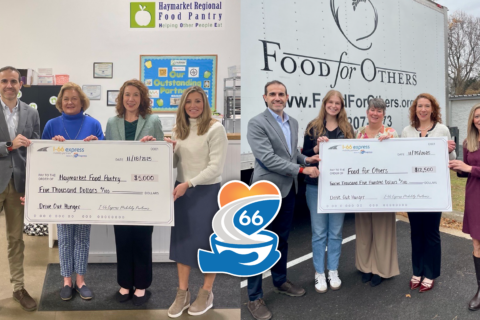The District Alliance for Safe Housing is known as the largest dedicated safe housing and service provider for people escaping domestic and sexual violence in the District of Columbia.
But that mission requires a significant amount of planning by leaders at DASH, as it’s also known.
“One of the key things I always tell folks is, as much as the nonprofit is in the business of doing good work, we also are a business,” said Koube Ngaaje, president and CEO of DASH.
“When we opened our first housing program, there were less than 50 beds available for survivors of domestic and sexual violence in the nation’s capital of the United States. And there was a dire need for critical emergency housing — but also safe housing options — for survivors.”
That led to the multimillion-dollar 2012 purchase of Cornerstone, a 42-unit apartment building. “And so we partnered with EagleBank to be able to get a very competitive rate for a mortgage and also to bring on EagleBank as our primary banker for the organization,” Ngaaje told WTOP during our Small Business September 2024.
After the Cornerstone acquisition, “we’ve since expanded our overall housing portfolio and service availability for survivors in the region,” she said.
“We also have scattered-site housing, where we partner with local landlords in the region to be able to house survivors, and we cover their rent and utilities and wraparound supports for up to two years as well,” Ngaaje said. “We also provide flexible financial assistance to survivors.”
Lending to DASH is a somewhat unique situation.
Managing the financial risk profile of a nonprofit
“It helps to have nonprofit experience because that sector is different,” said Craig Small, senior vice president and C&I relationship manager at EagleBank. “Nonprofits have business-like elements, but their primary focus is not on generating profit. So the risk profile is a little different, and the financial statements look different. We had to do a little bit of a deep dive to really understand what was going on with DASH.”
The partnership is a matter of pride for EagleBank though.
“Broadly speaking, throughout the bank, we had people that have nonprofit expertise, have worked in nonprofits, served on boards … and have a real familiarity with what’s going on with them. And we really enjoy, and I really enjoy, supporting the mission,” Small said. “That is what makes it special.”
To discover more insights for entrepreneurs, startups and SMBs shared during WTOP’s Small Business September, click here.
Member FDIC







